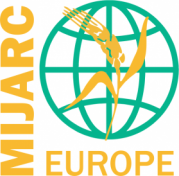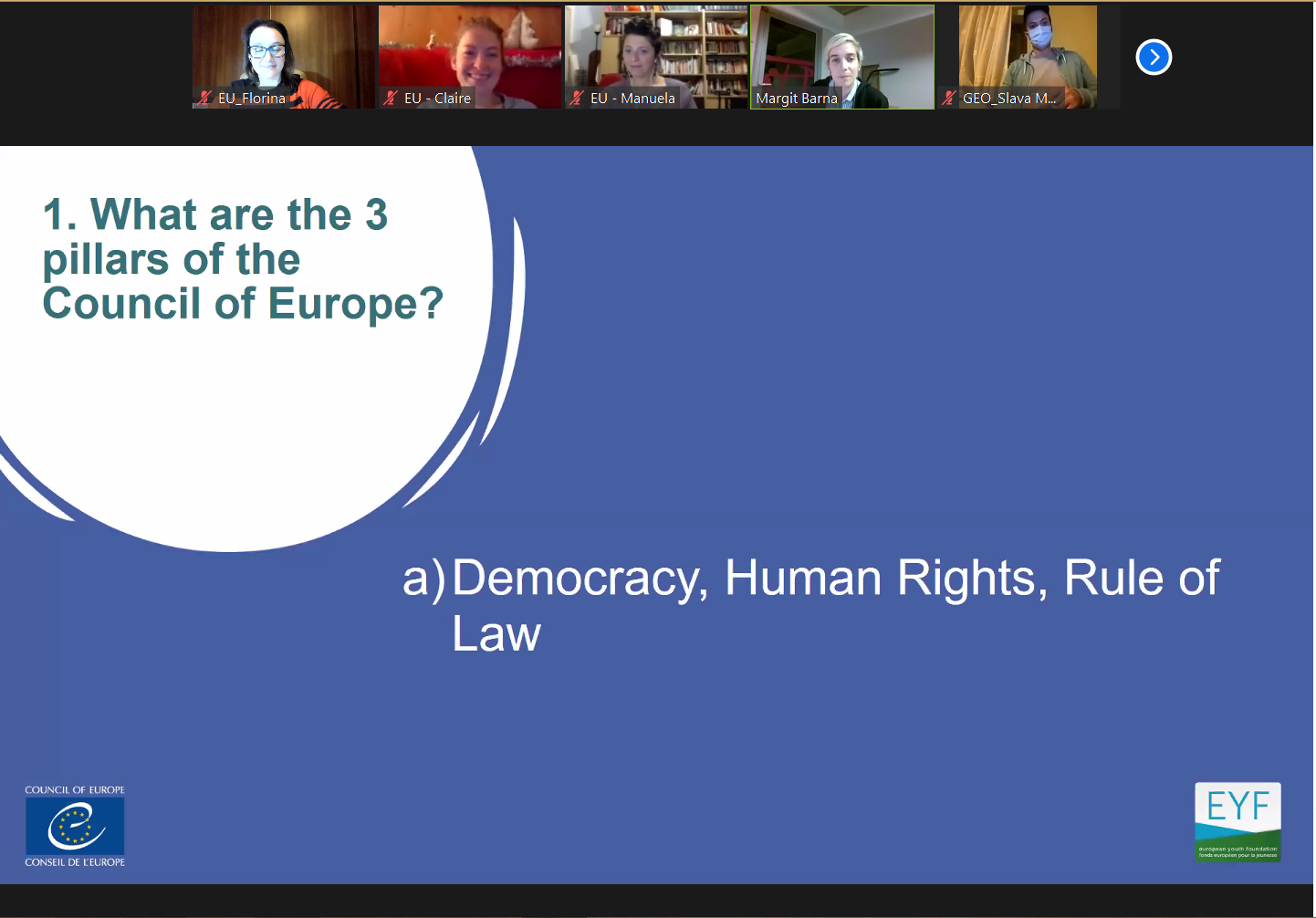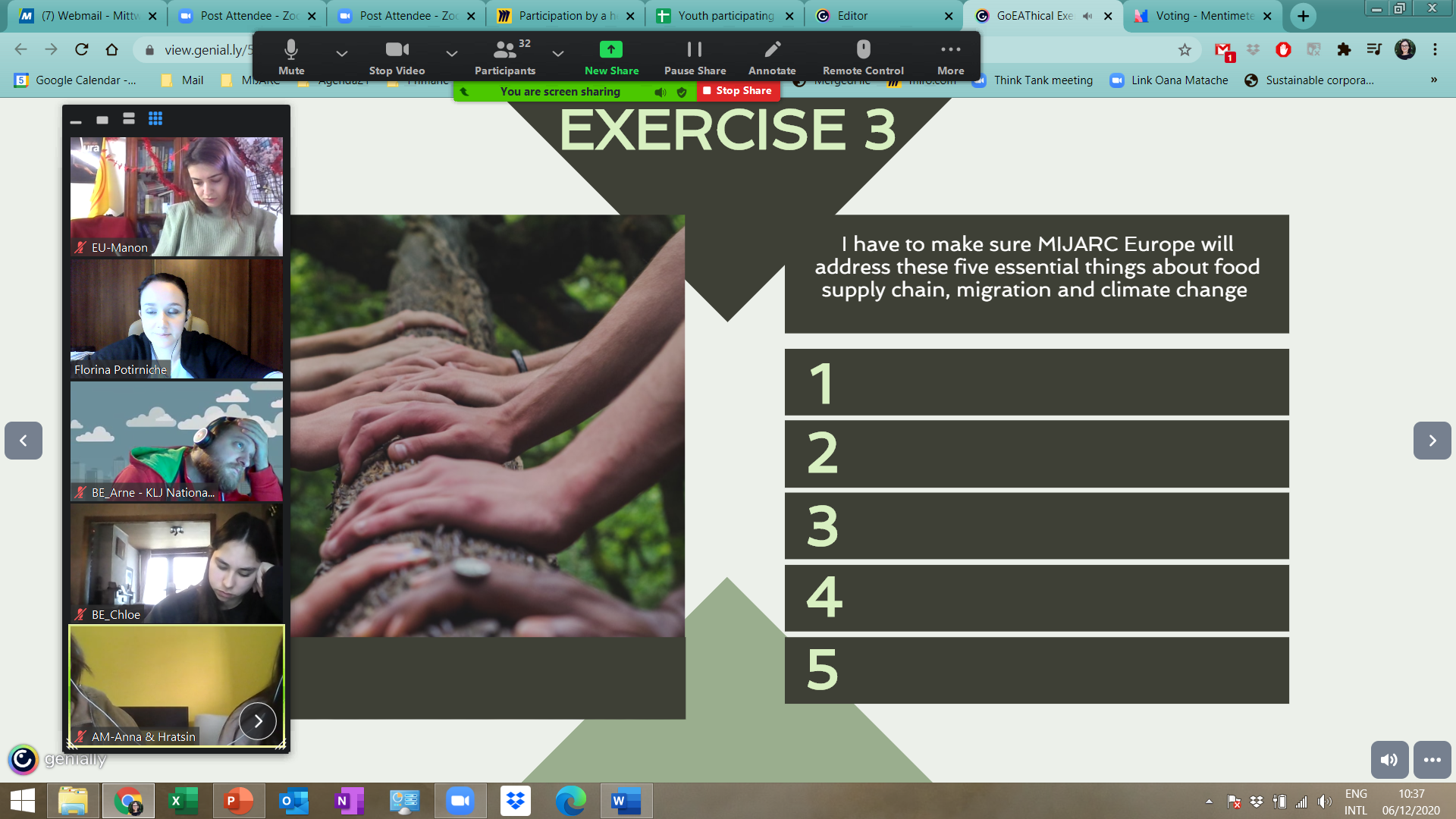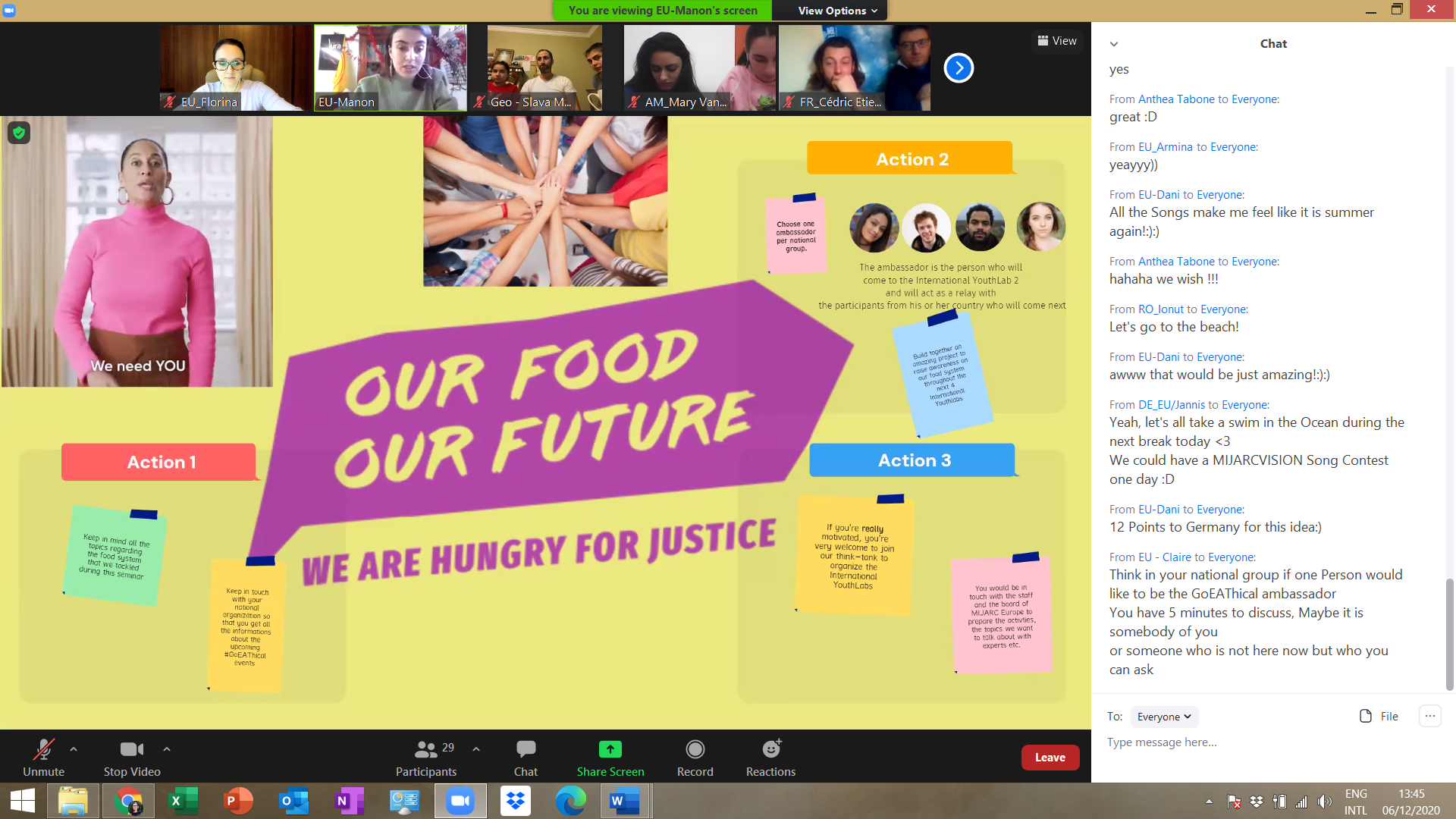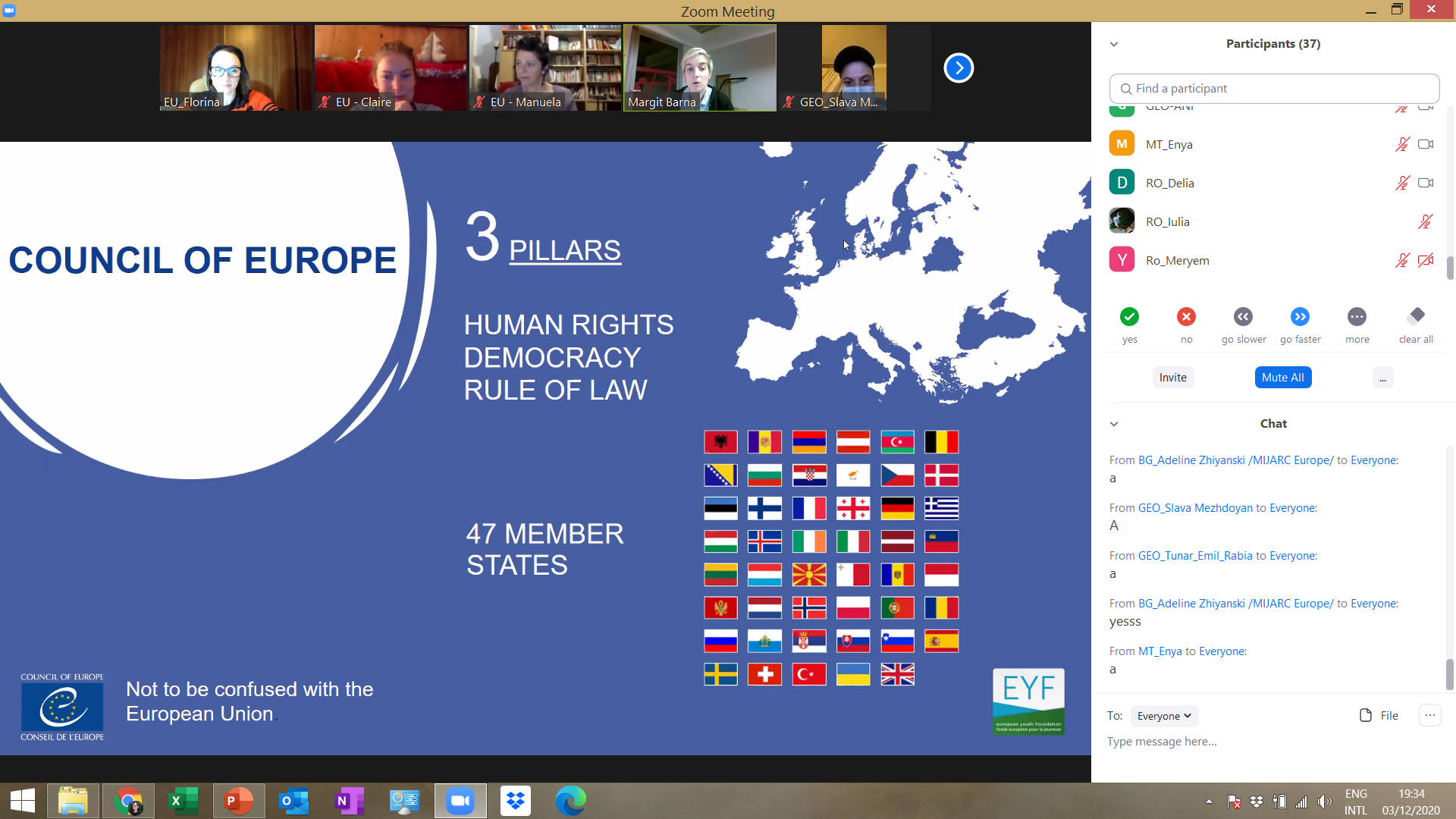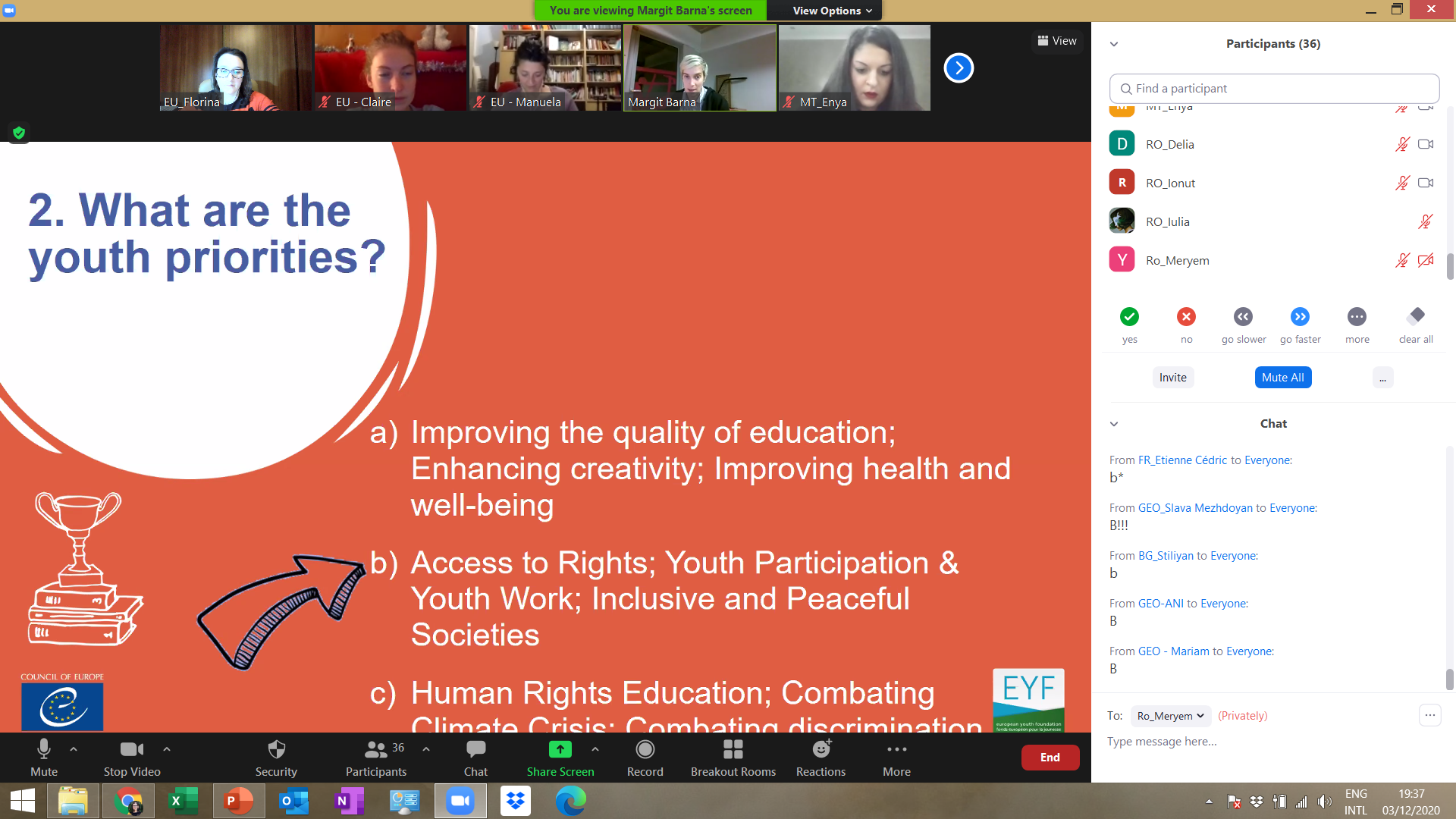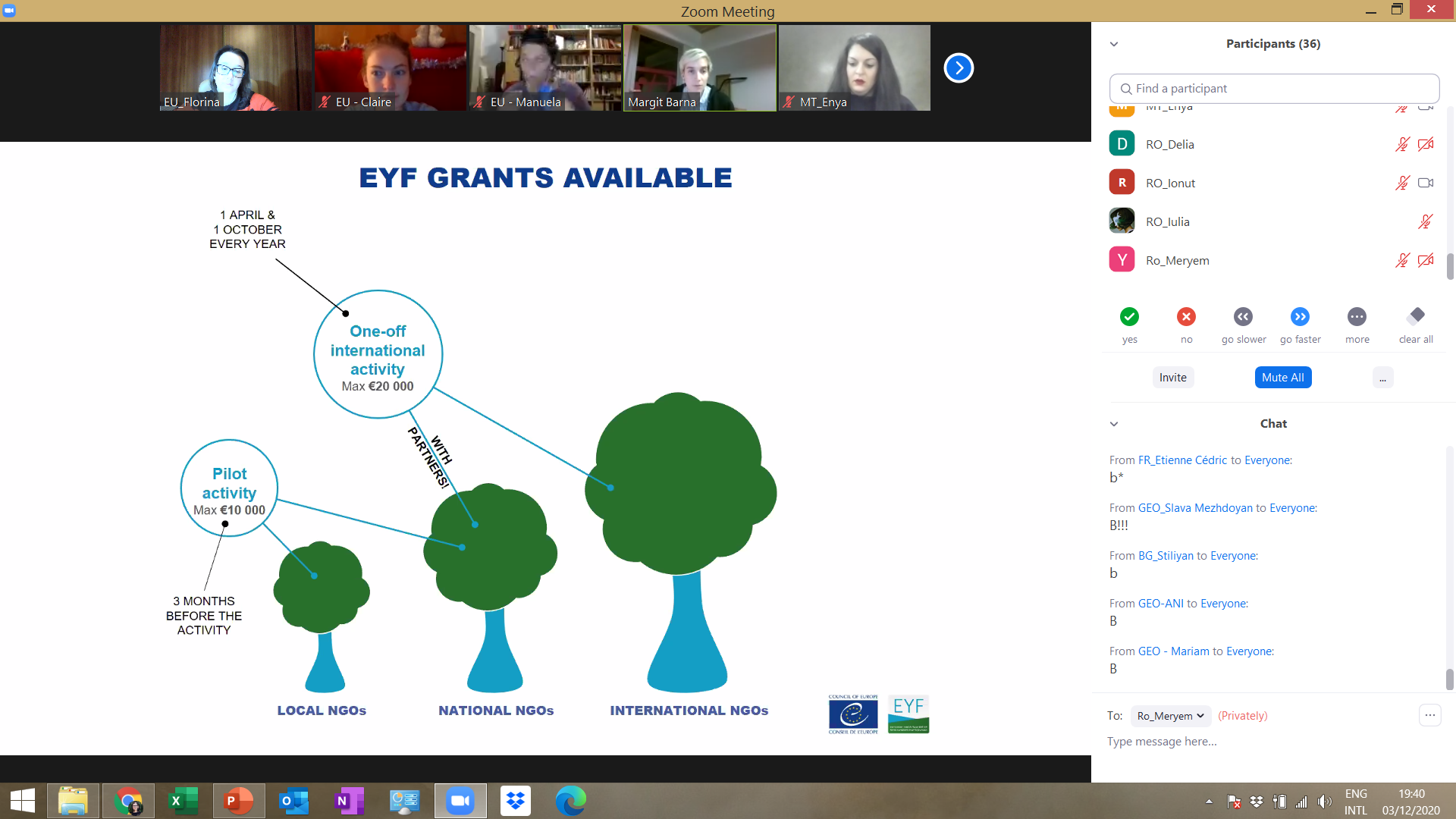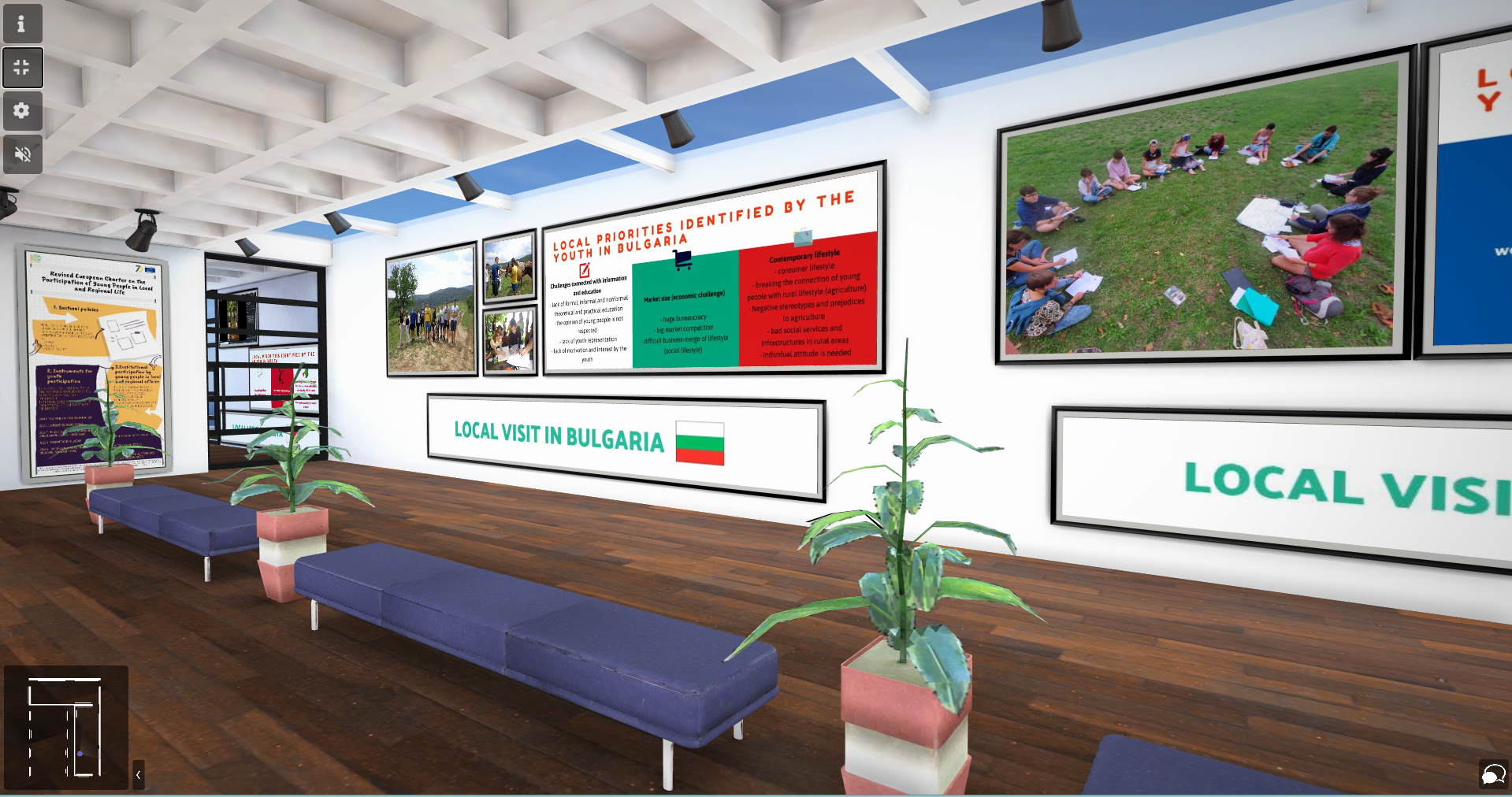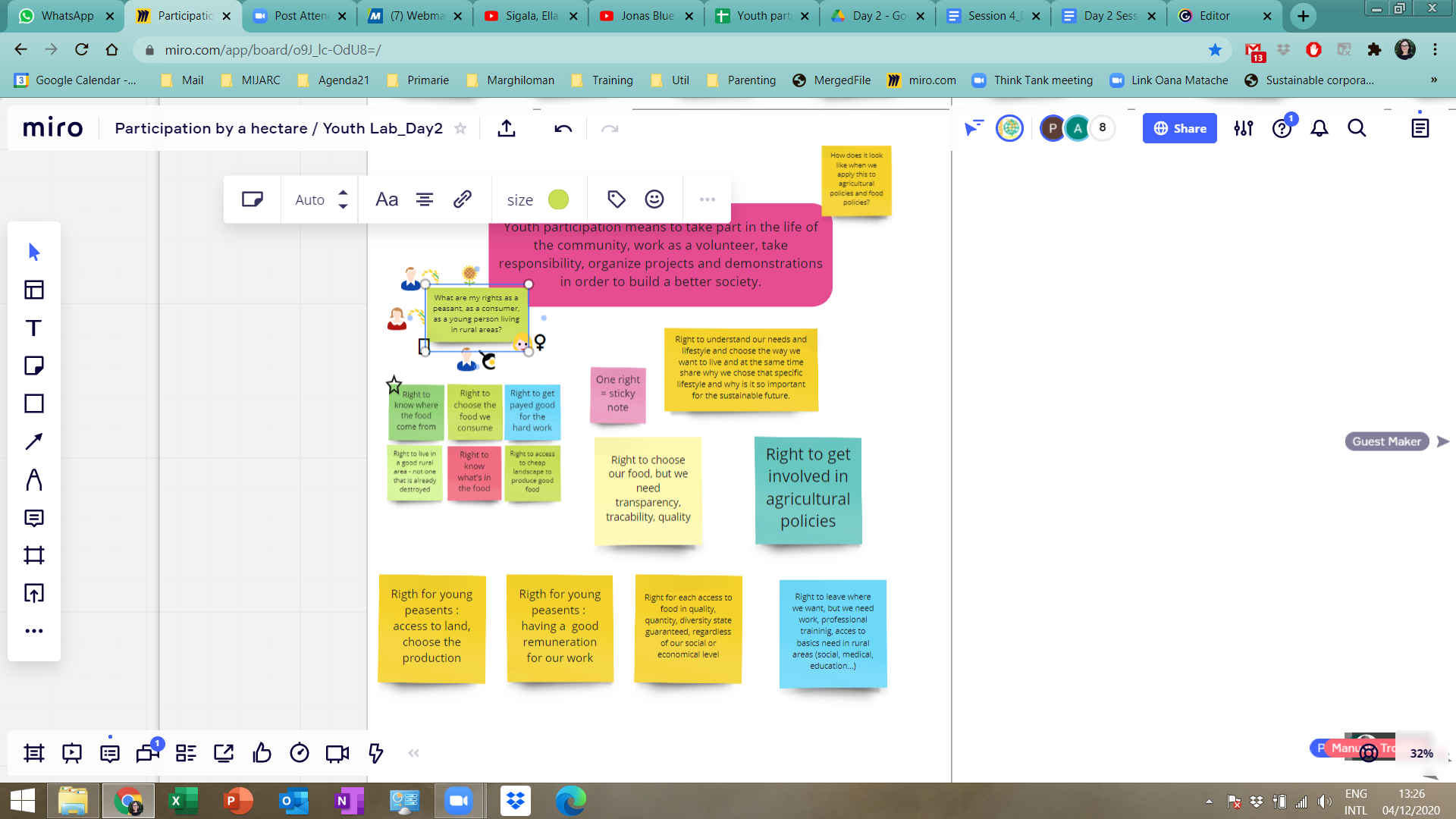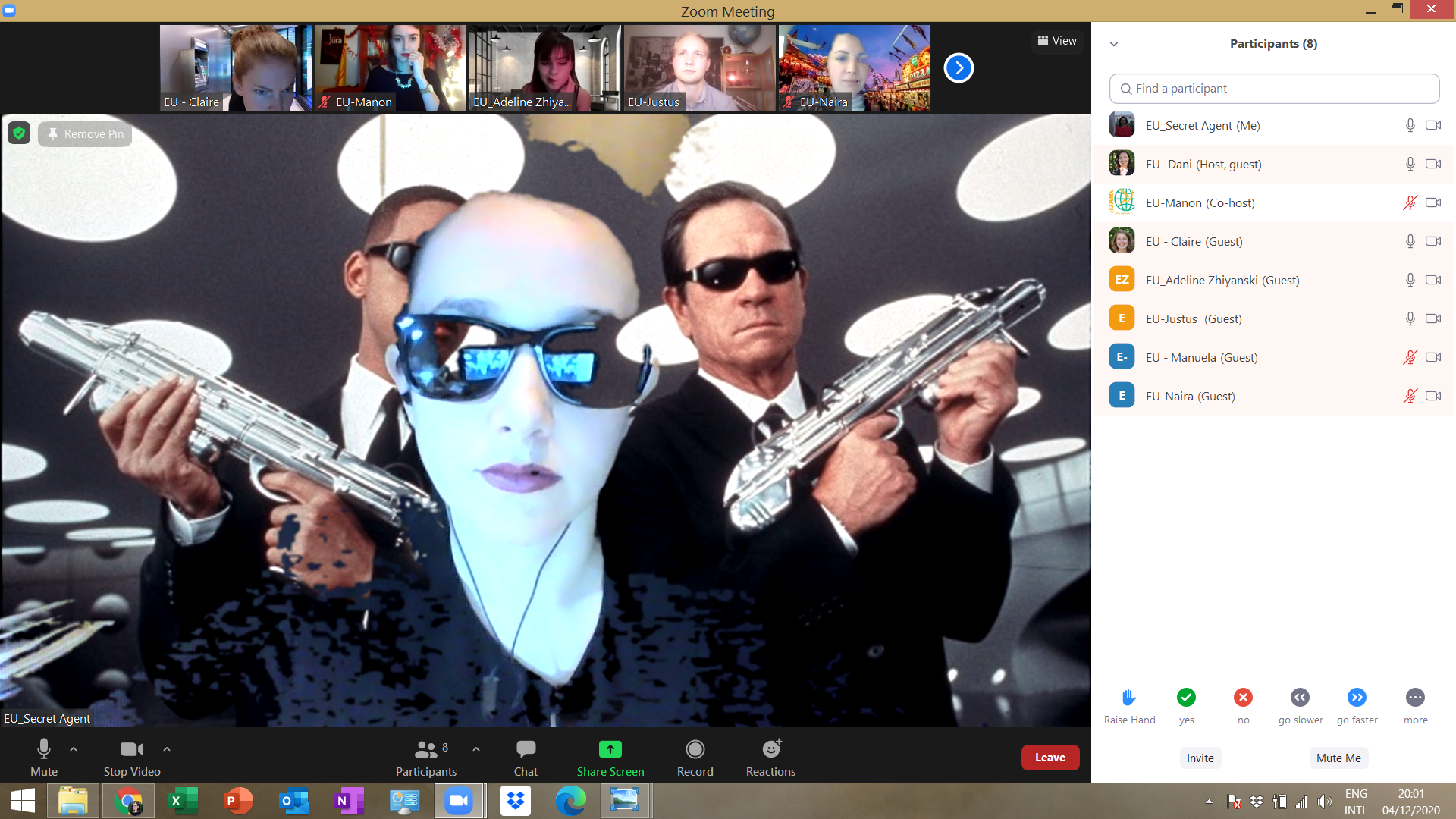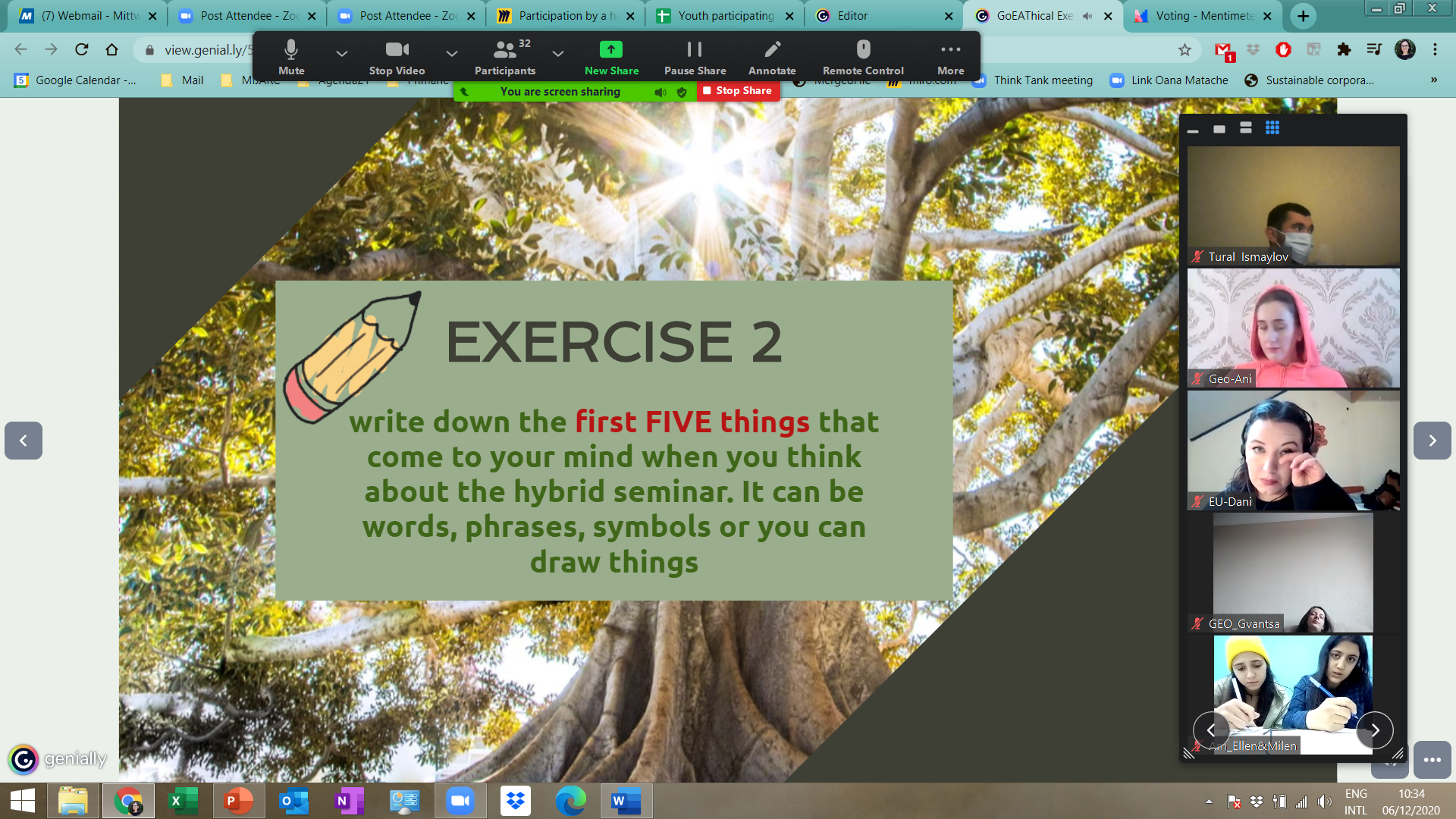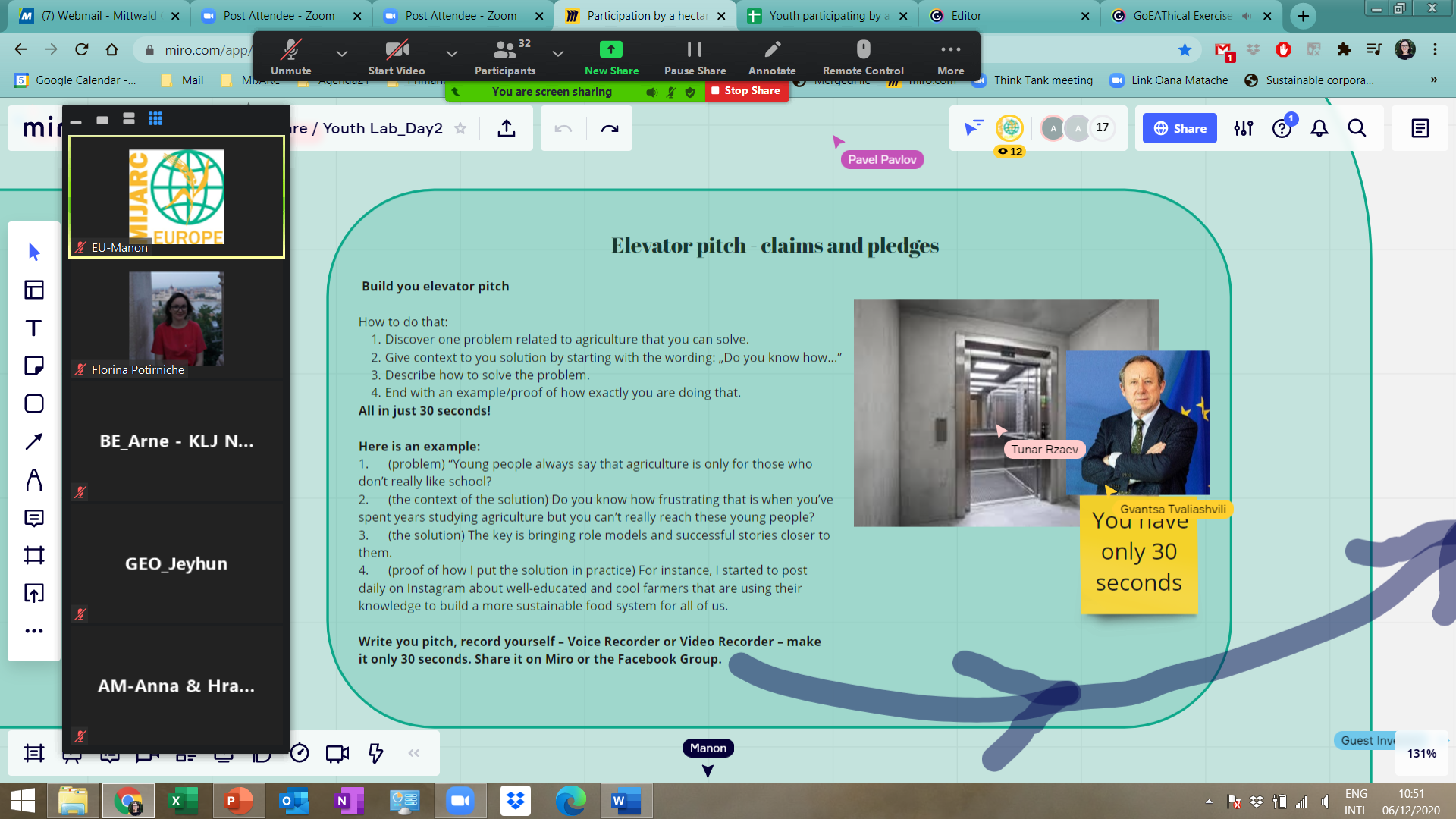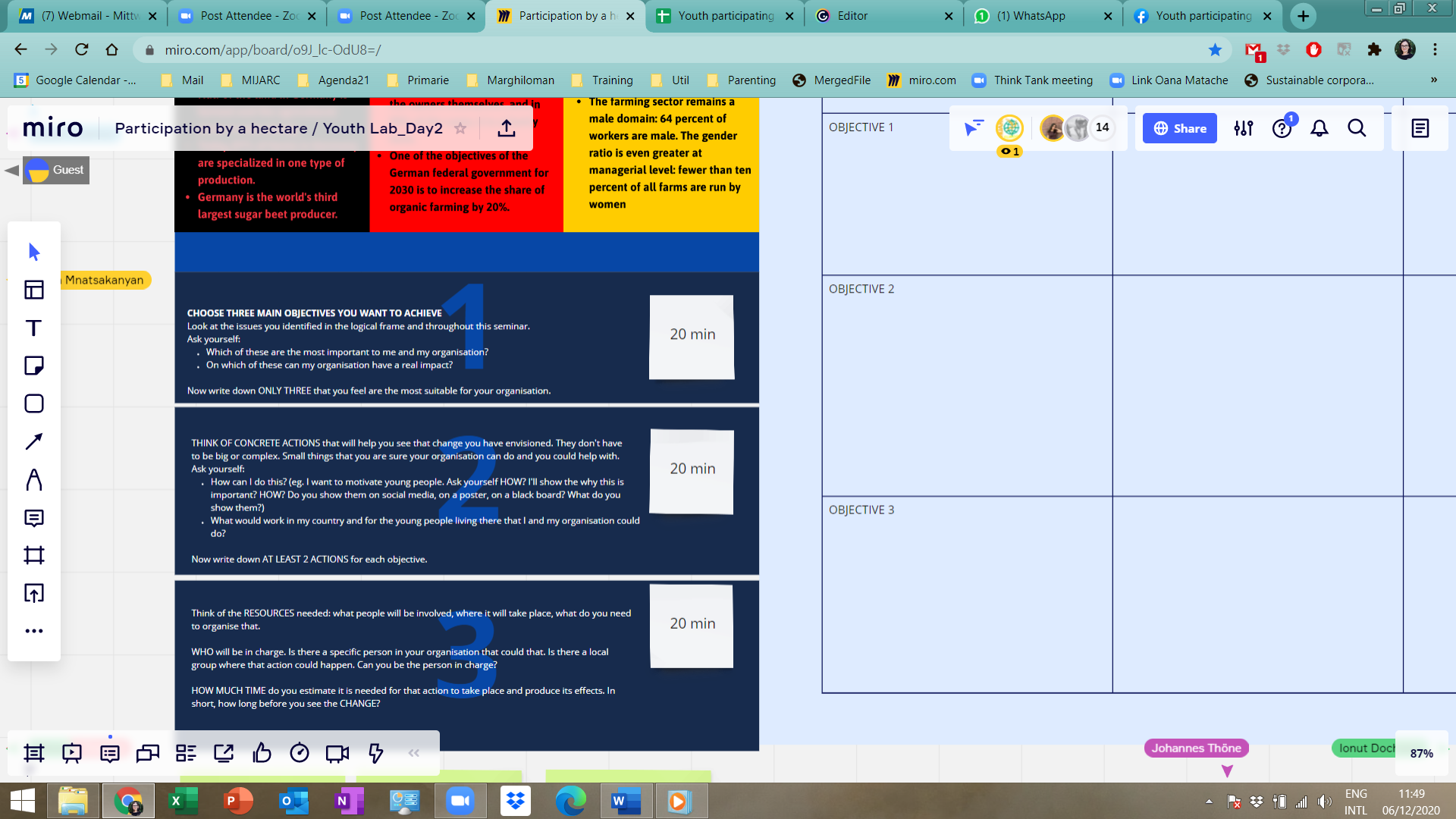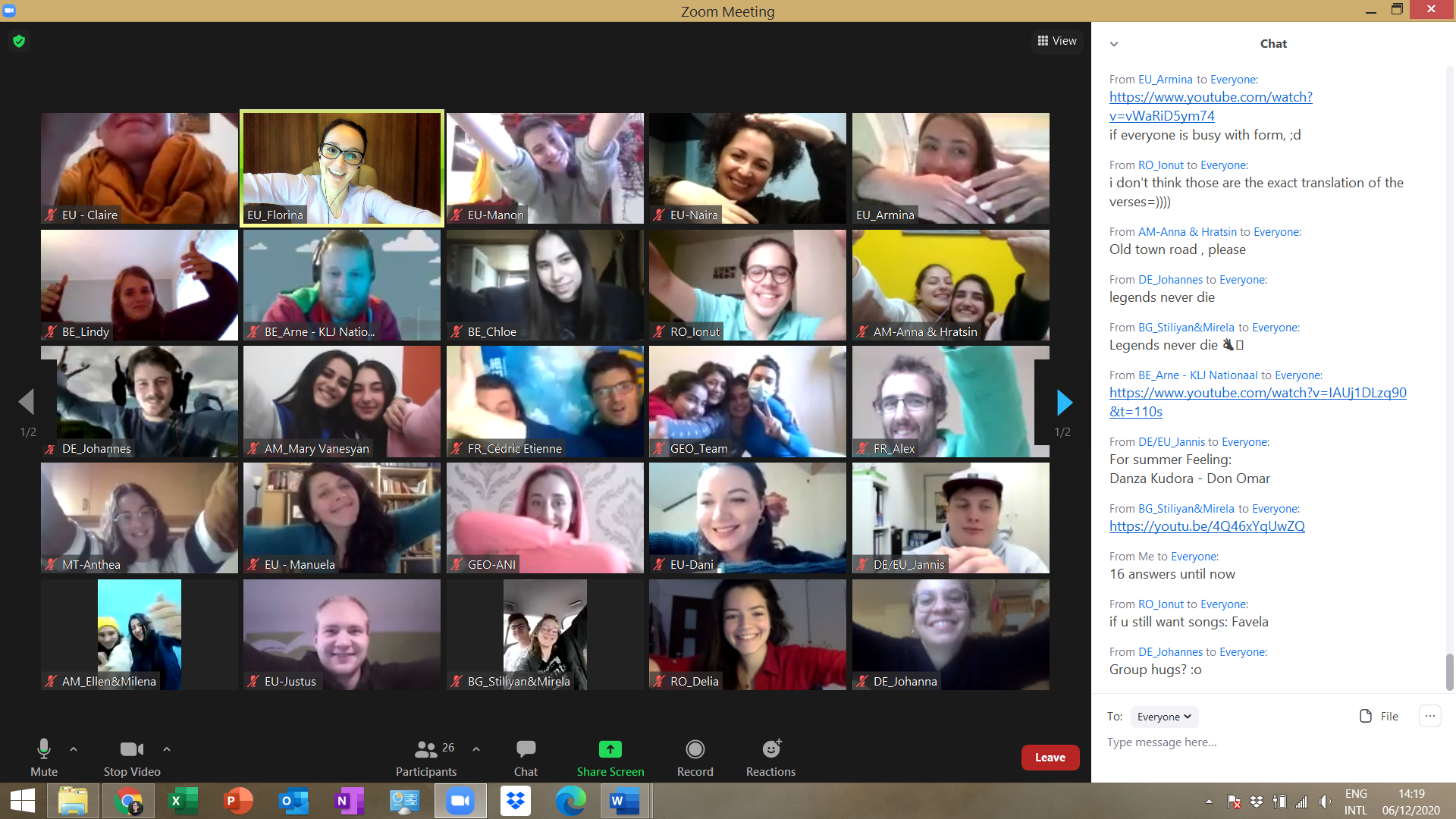Our second international activity of the year was carried out in a hybrid format with participants meeting in national groups or connecting exclusively online to create a diverse, joyful and motivated group of young people who managed to learn from and inspire each other despite the global pandemic.
”The topic is really actual. We have so many things to do to find right solutions. There are really a lot of similar problems connected to agriculture all over the world.”
– participant to the seminar
The hybrid seminar and youth lab „Youth Participating by a hectare” was the second activity included in the our work plan „Rock, paper, participation” which is co-funded by the European Youth Foundation of the Council of Europe, and the first international youth lab of the #OurFoodOurFuture project, co-funded by the European Commission and Renovabis.

The seminar and youth lab took place between 3-6 December 2020, after it had been postponed from July to September and then postponed again to the end of the year, when the restrictions imposed by the pandemic across Europe, allowed some of the participating counties to organise face to face meetings. In Armenia, Bulgaria and Georgia our local movements were able to meet in national groups for 4 days and connected with their peers from Belgium, Germany, France, Malta and Romania via Zoom. A group of 44 registered participants, representing 8 European countries joined the activity. 37 of them attended the seminar and youth lab for its entire duration.
The general aim was for participants and their organisations to leave the seminar with concrete measures and practices that they could use in order to increase the extent to which young people get involved in agricultural policies at local level. It also focused on a transformation at individual level, as participants were expected to enter the activity as mere consumers and leave as informed people who know the problems and know where to act to contribute to change them.
With the help of many online tools such as Miro, Mentimeter, Genial.ly, Canva and a lot of creativity, the team of facilitators managed to create an effective hybrid educational activity that increased the participants’ knowledge on sustainable agriculture, its processes and activities (35 out of 37 participants) and on the Revised European Charter on the Participation of Young People in Local and Regional Life (30 participants).
The most useful thing I learnt was how to use the Charter to engage youth in agricultural policies.
participant to the seminar
The activity started with a warm-up evening during which get-to-know-each-other games, exercises and songs brightened the atmosphere and gave a nice introduction on how the hybrid seminar would be led. The facilitators explained the ground rules, helped the participants who had technical difficulties, clarified their roles and tested all the tools that would be used throughout the seminar. The group was happy to welcome Margit Barna from the European Youth Foundation who played a fun quiz about the EYF and the Council of Europe.
On the second day the participants were introduced into the topic of youth participation, food production and agriculture and started their day with a visit to a virtual museum where the priorities identified in each country during the local visits, within the first phase of the work plan, were displayed. Starting from there the participants went on to mapping the realities in their countries guided by questions such as:
- What are the main agricultural productions in your country? Give 3 examples.
- Point out 3 biggest problems in agriculture caused by climate change in your country and explain how the governments try to solve those problems.
- What is the role of women and young people in agriculture?
The day ended with an offline guided tour and national work groups in which the participants started writing down priorities in their countries and formulating them as objectives in the National Action Plan template prepared by the team of facilitators on Miro. Last but not least, the evening programme took the participants through an escape room where they had to crack a code by working as a team and performing multiple challenges: such as calming a crying baby, playing memory games, signing songs and impressing a mad clown.
The third day was dedicated to three practical workshops on: soil, animal walfare and water and land grabbing. Each workshop was led either by one of the trainers or a guest speaker and oferred specific information, examples and reflection exercises on each of three topics. The day ended with a participatory workshop during which the participants summarised each topic in a mind map. Then the facilitators conducted a virtual world cafe in order to allow participants to discuss connections among the three workshop topics and a collection of European best practices.
Water talks to me, I speak for water. I didn’t get support and I was called crazy, but I never gave up. What I can always do is to continue with my determination and do whater is possible, whatever you are good at.
Ranjan Panda
The fourth and final day relied on emotions, engagement and inspiration to continue the work and take the results of the hybrid seminar a step further. A spiritual impulse created the perfect start for an imaginative exercise that took participants into the future and invited them to reflect about the seminar. Next, the participants had to prepare a 30-second elevator-pitch to deliver to the Commissioner for Agriculture, whom the meet by chance while taking the elevator to the MIJARc Europe office. Want to see or hear what our participants had to say? Here are their recordings: elevator pitches.
The main outputs of the hybrid seminar are the eight national action plans, focusing on increasing youth participation in agricultural policies and tackling the most stringent needs related to agriculture that the participants identified in their countries. The action plans are the basis for the development of the project proposal during the next international activity – the winter camp “Cultivating youth participation’.
Main learning outcomes:
- increased knowledge on the Revised European Charter on the Participation of Young People at local and regional level
- increased awareness on the situation of women in agriculture
- almost 90% of the participants declared that they knew more about sustainable agriculture, food supply chains and about agriculture in the other participant countries as a consequence of having attended the seminar
“I want to discover what offline MIJARC is! I want to travel outside my country to meet you! Online MIJARC seminar was the best you could have done considering the circumstances, big up for the organisation team!
participant to the seminar
